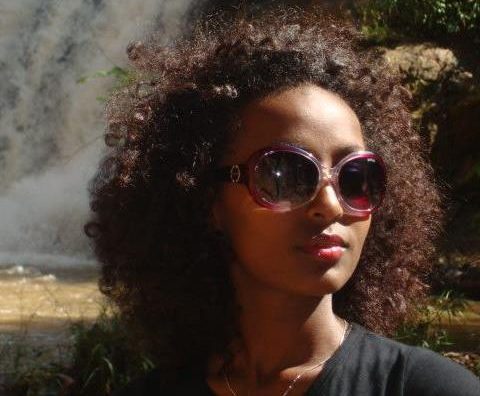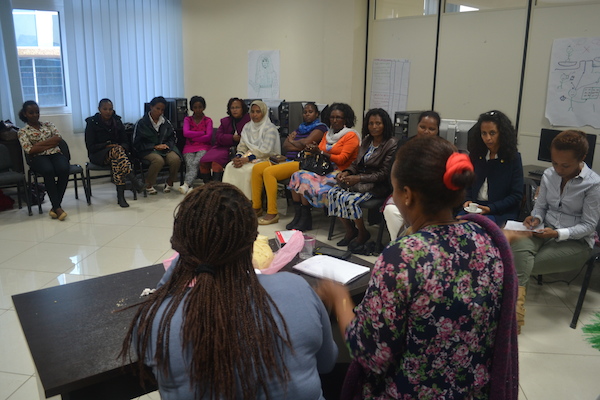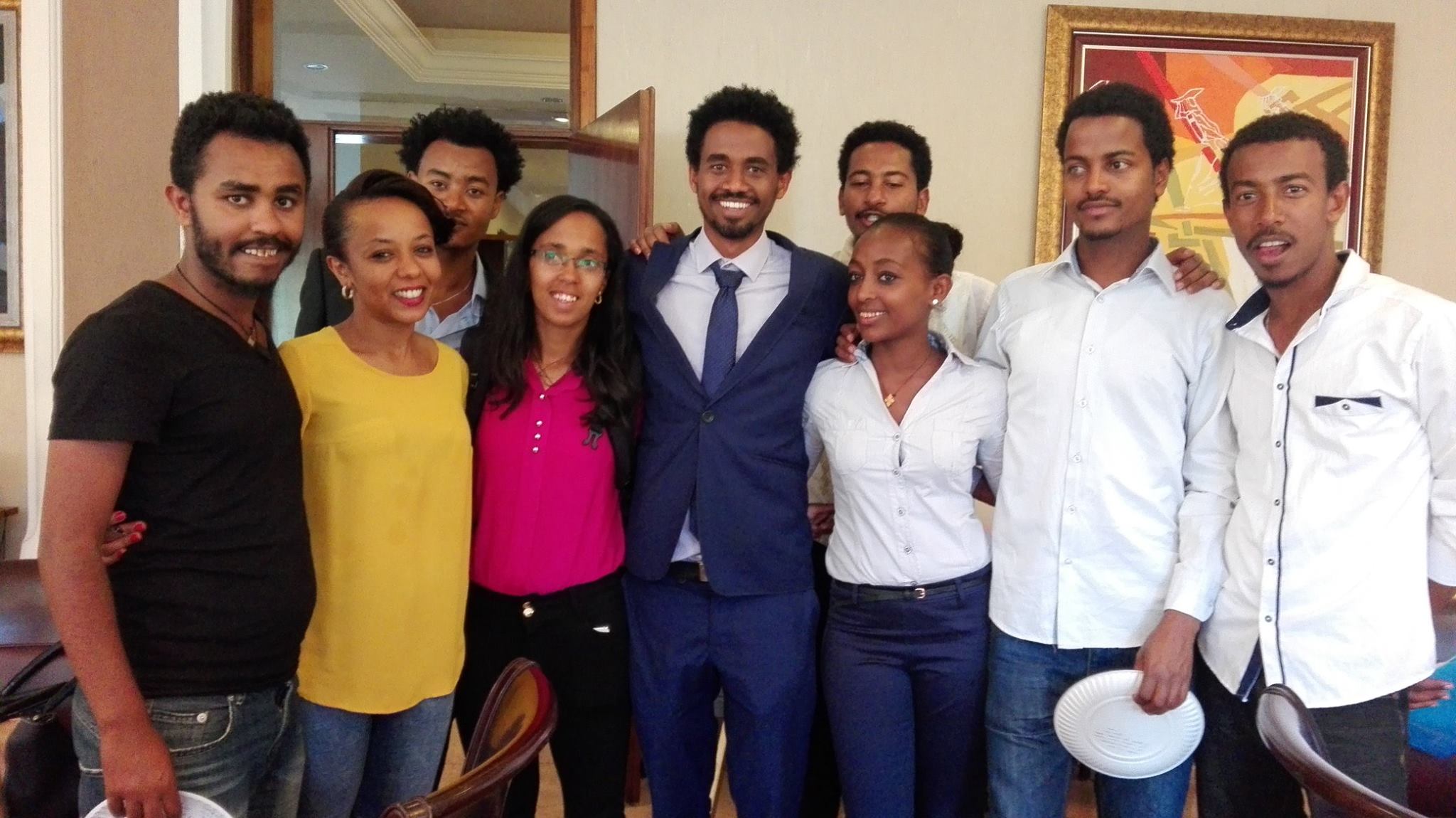Story
Tsege

Creating communities of women entrepreneurs
Women in Ethiopia face many barriers to becoming entrepreneurs. They often have less education than men, can face discrimination, and are less likely to own assets like a house or land, so it can be harder for them to find collateral for a loan to establish or expand a business.
For these reasons, women entrepreneurs in Ethiopia have fewer opportunities than do men. In 2012, Ethiopia ranked 107 out of 112 countries on the Economist’s Women’s Economic Opportunity index.
Tsege Afrassa is helping women create opportunities for themselves.
Tsege and her friend Anteneh Tasew are two #DOTYouth that are equipping women entrepreneurs in Ethiopia with the tools, skills and networks to strengthen their businesses.
Tsege and Anteneh are working with DOT Ethiopia in local communities to offer financial, digital, and entrepreneurship training. In the process, they are learning about the real needs in their community and creating new opportunities.
With Tsege and Anteneh’s support and coaching, women from local communities interview their customers and competitors, define their business vision, and develop business plans.
Initially, the women entrepreneurs participating in the program were reluctant to share their ideas with the other participants, and they stayed quiet. Slowly, as the women got to know each other over tea breaks and in peer coaching sessions, they became more comfortable and began to share openly, creating meaningful bonds.
In fact, as the training continued, the group of women realized how important it was to have a community of entrepreneurs they could rely on. The women didn’t want to lose this community when the training ended.
Identifying this need and opportunity was the spark that inspired Tsege and Anteneh to found the ENAT Association.
Named after the Amharic word for “mother,” the ENAT Association helps its members strengthen their businesses. Women can promote their individual businesses through the association, and organize and participate in bazaars and expos as a group. Soon, they will ask the city administration for a space at the marketplace in order to sell their products together.

There is strength in numbers, and ENAT Association is helping women entrepreneurs do what they may have not had the confidence or skills to do alone. DOT Ethiopia’s Business Development Center supported ENAT to join the Ethiopian Women Exporters’ Association, to further connect them with the network of women entrepreneurs in Ethiopia.
The impact of the work Tsege and Anteneh are doing in their community has been impactful, and is creating many new opportunities. The World Bank’s Gender Innovation Lab commissioned a study on DOT Ethiopia’s project, and found that “… the entrepreneurship training offered by DOT to women entrepreneurs in Ethiopia had a significant, positive impact on profits. Entrepreneurs who were offered the training recorded 30% higher profits than the control group.”*
Tsege and Anteneh are proud of the role they play in helping women entrepreneurs develop the tools, knowledge, and networks to transform their own communities and create opportunities.

“Anteneh and I are so happy we got the opportunity through DOT to work so closely with our community and initiate very positive change,” says Tsege. “We can empower women and help them in the community. We can create powerful, visionary, and economically-empowered women.”
*The World Bank (2016), From Learning to Earning: Impacts of an Innovative Entrepreneurship Training.
The group of women realized how important it was to have a community of entrepreneurs they could rely on…. Identifying this need and opportunity was the spark that inspired Tsege and Anteneh to found the ENAT Association.
Are you our next Community Leader, Digital Champion, or Social Innovator? Learn more about how to join #DOTYouth
Join #DOTYouthShare this Story
More STORIES
Read more inspiring stories like Tsege.